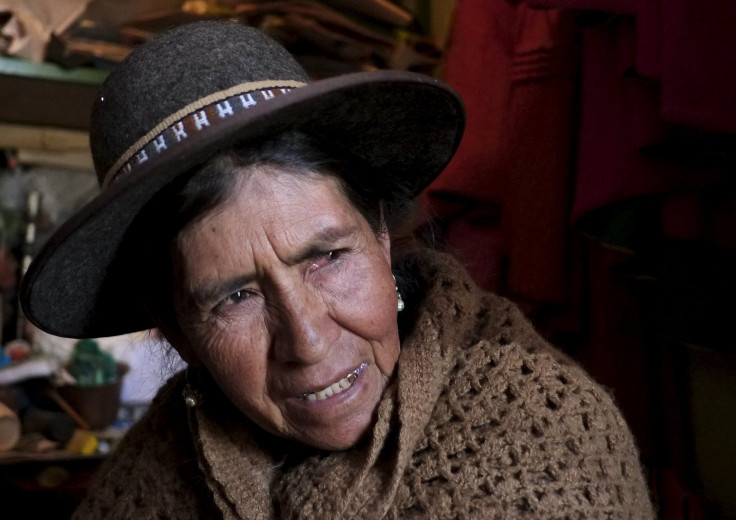Pope Heads To South America To Champion The Poor And The Planet

VATICAN CITY (Reuters) - Pope Francis leaves Rome on Sunday for his first trip to Spanish-speaking Latin America, a "homecoming" to a continent where he will champion the rights of the poor and of the planet.
His trip to Ecuador, Bolivia and Paraguay three of South America's poorest and smallest countries, is Francis' first abroad since his landmark encyclical "Laudato Si" issued an urgent call for defense of the environment.
Francis arrives in the Ecuadorian capital Quito after a 13-hour flight from Rome, where on Saturday night he went to the Basilica of St. Mary Major to pray for the success of trip.
He left a bouquet of flowers in the colors of the flags of the three countries.
Francis visited Brazil for a youth festival in 2013 but that was to substitute for his predecessor Benedict after his sudden resignation.
Because he chose the three countries himself, Vatican aides say this is the real "homecoming" to his native continent. He will not visit his native Argentina until next year.
His first stop, Ecuador, has for several weeks been hit by anti-government demonstrators who have taken to the streets to protest against tax rises and alleged autocracy in government.
Protest leaders have called a moratorium during the duration of the pope's visit out of respect for him.
Celebrated by supporters as a champion of the poor but cast by critics as an old-style Latin America "caudillo", President Rafael Correa was elected in 2006 vowing to spread the country's wealth more fairly and protect the country's natural riches.
Posters and billboards, some featuring Papal quotes, have appeared all over Quito, a highland capital mixing colonial cobbled streets with modern high rises, celebrating Francis' arrival. Some Ecuadoreans are preparing to camp out at the main plaza to welcome him.
A million extra people are expected to flood into Quito and the coastal city of Guayaquil to see the Pope at large open-air masses there.
Environmental Challenge
Ecuador is heavily reliant on oil and mining while boasting some of the world's greatest biodiversity including the Galapagos Islands, where Charles Darwin formulated his ideas on evolution.
In his Laudato Si encyclical, Francis demanded swift action to save the planet from environmental ruin and urged world leaders to hear "the cry of the earth and the cry of the poor," who he said were most affected by climate change.
Correa's leftist government, which introduced austerity measures after a major drop in oil prices, is walking a tightrope between business and protecting the environment.
From Ecuador, Francis moves on to Bolivia, where he is expected to strongly defend the right of indigenous people. In Bolivia, he will also visit the notoriously violent Palmasola prison, a virtual city with its own rules.
Landlocked Paraguay, the last stop, is notorious for contraband smuggling and illicit financing. It ranks as the second-most corrupt in South American, behind Venezuela, according to non-government organization Transparency International's Corruption Perception Index. He will meet several groups of social activists while he is there.
While all three countries the pope is visiting are between 82 and 93 percent Catholic, the Church in other parts of Latin America is losing faithful who are leaving to join Protestant evangelical groups.
Identification with Catholicism is declining throughout the region, according to a recent study by the Pew Research Center.
The pope, however, has felt more comfortable holding dialogues with these groups than his two immediate predecessors did. He had good relations with Protestant evangelical groups when he was archbishop of Buenos Aires.
At a rally of various Christian denominations in St. Peter's Square on Friday, he said everyone should feel comfortable praying with each other.
© Copyright Thomson Reuters 2024. All rights reserved.





















